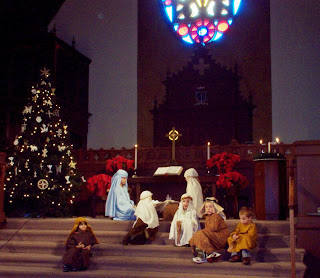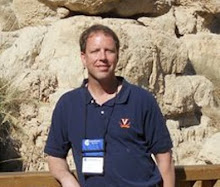The day before the beginning of Lent is known as Shrove Tuesday. To shrive someone, in old-fashioned English (he shrives, he shrove, he has shriven
or he shrives, he shrived, he has shrived), is to hear his acknowledgement of his sins, to assure him of God's forgiveness, and to give him appropriate spiritual advice. The term survives today in ordinary usage in the expression "short shrift". To give someone short shrift is to pay very little attention to his excuses or problems. The longer expression is, "to give him short shrift and a long rope," which formerly meant to hang a criminal with a minimum of delay.
On Shrove Tuesday, many Christians make a special point of self-examination, of considering what wrongs they need to repent, and what amendments of life or areas of spiritual growth they especially need to ask God's help in dealing with. Often they consult on these matters with a spiritual counselor, or receive shrift.
Shrove Tuesday is also called Fat Tuesday (in French, Mardi=Tuesday; gras=fat, as in "pate de foie gras", which is liver paste and very fatty), because on that day a thrifty housewife uses up the fats that she has kept around (the can of bacon drippings, or whatever) for cooking, but that she will not be using during Lent. Since pancakes are a standard way of using up fat, the day is also called Pancake Tuesday. In England, and perhaps elsewhere, the day is celebrated with pancake races. The contestants run a course while holding a griddle and flipping a pancake. Points are awarded for time, for number and height of flips, and number of times the pancake turns over. There are of course penalties for dropping the pancake.
(Digression: In December, Jews celebrate the feast of Hanukkah, the re-dedication of the Temple after it had been captured by pagans and desecrated. (See John 10:22 and also the apocryphal book of 1 Maccabees 4:36-59.) It is said (though not in our earliest sources) that when the Temple was rededicated, there was only enough pure oil to light the lamps for one day, and no prospect of getting more for eight days. It was decided to light the lamps anyway, and the supply of oil lasted for eight days, until more could be gotten. To commemorate this abundance of oil, Jews are accustomed at Hanukkah to eat potato pancakes, called latkes, which are made with an abundance of oil. Thus the custom of eating pancakes at a time when oil or fat is presumably abundant is common to both traditions.)
Today at 6:00 PM, the Men of the Church
will be preparing their delicious pancakes! Come and enjoy the fellowship.
Donations will be acepted at the door.
~BUILD FAITH~~NURTURE HOPE~~SHARE GOD'S LOVE~























